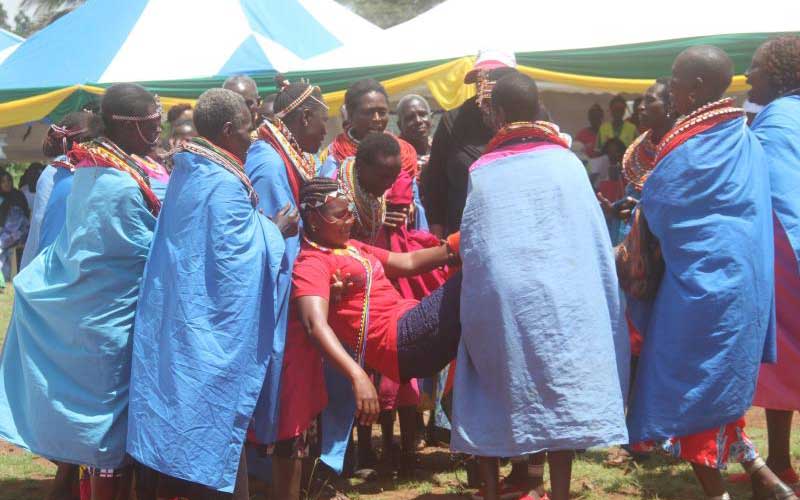×
The Standard e-Paper
Stay Informed, Even Offline

Women attend the International Day for Zero Tolerance to FGM in Isiolo on February 6. [Bruno Mutunga]
A few minutes after the baby was born, the midwife handed it to its waiting grandmother with a reproaching look. And with that the fate of the baby, who had not yet been named, was sealed.